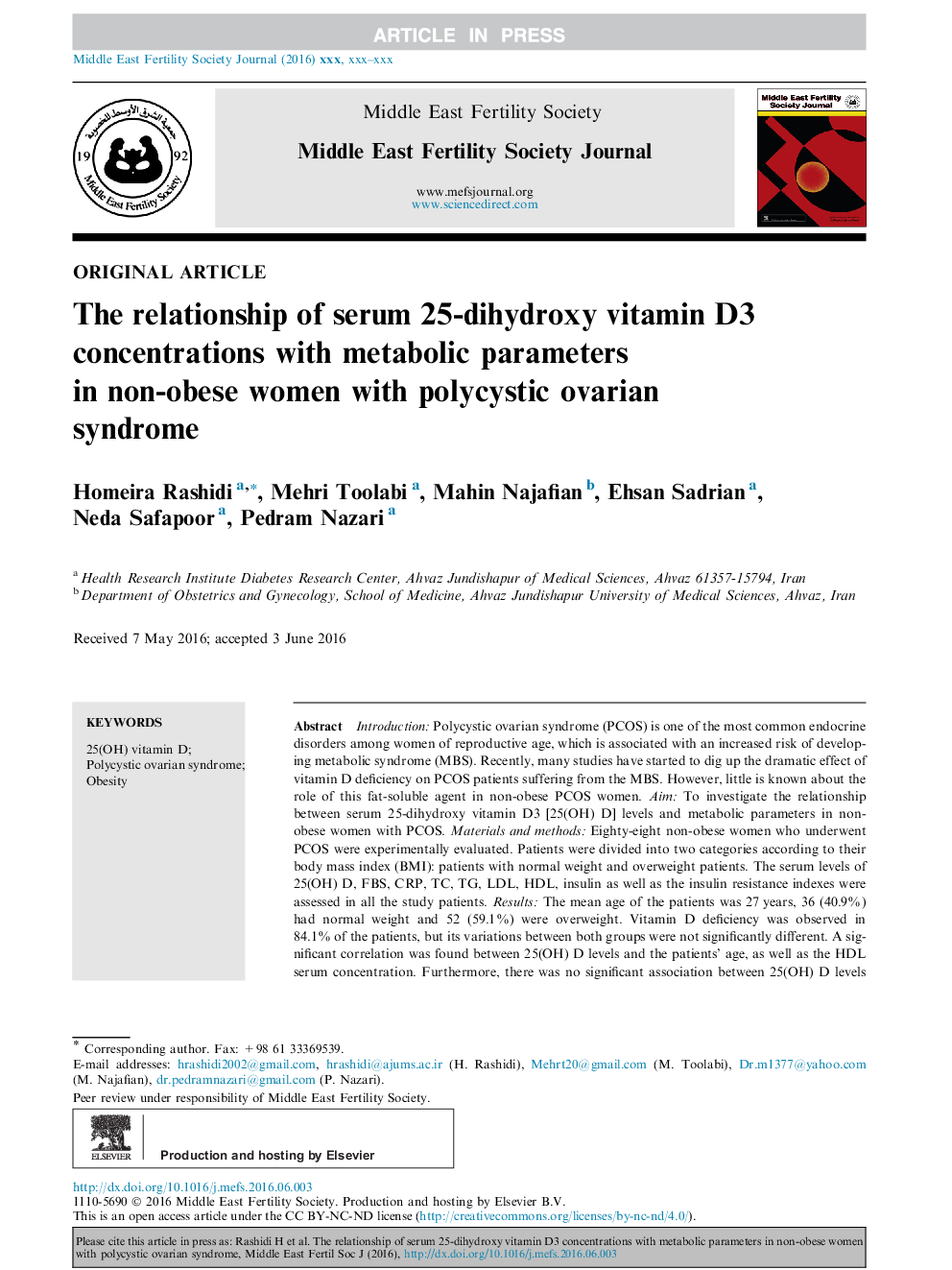| Article ID | Journal | Published Year | Pages | File Type |
|---|---|---|---|---|
| 8783351 | Middle East Fertility Society Journal | 2016 | 5 Pages |
Abstract
Introduction: Polycystic ovarian syndrome (PCOS) is one of the most common endocrine disorders among women of reproductive age, which is associated with an increased risk of developing metabolic syndrome (MBS). Recently, many studies have started to dig up the dramatic effect of vitamin D deficiency on PCOS patients suffering from the MBS. However, little is known about the role of this fat-soluble agent in non-obese PCOS women. Aim: To investigate the relationship between serum 25-dihydroxy vitamin D3 [25(OH) D] levels and metabolic parameters in non-obese women with PCOS. Materials and methods: Eighty-eight non-obese women who underwent PCOS were experimentally evaluated. Patients were divided into two categories according to their body mass index (BMI): patients with normal weight and overweight patients. The serum levels of 25(OH) D, FBS, CRP, TC, TG, LDL, HDL, insulin as well as the insulin resistance indexes were assessed in all the study patients. Results: The mean age of the patients was 27Â years, 36 (40.9%) had normal weight and 52 (59.1%) were overweight. Vitamin D deficiency was observed in 84.1% of the patients, but its variations between both groups were not significantly different. A significant correlation was found between 25(OH) D levels and the patients' age, as well as the HDL serum concentration. Furthermore, there was no significant association between 25(OH) D levels and insulin resistance index in both groups with PCOS. Conclusion: Our study found no association between lower 25(OH) D levels and increased risk of metabolic disturbances and insulin resistance in non-obese patients with PCOS.
Related Topics
Health Sciences
Medicine and Dentistry
Obstetrics, Gynecology and Women's Health
Authors
Homeira Rashidi, Mehri Toolabi, Mahin Najafian, Ehsan Sadrian, Neda Safapoor, Pedram Nazari,
